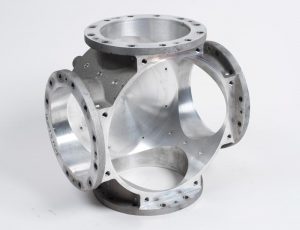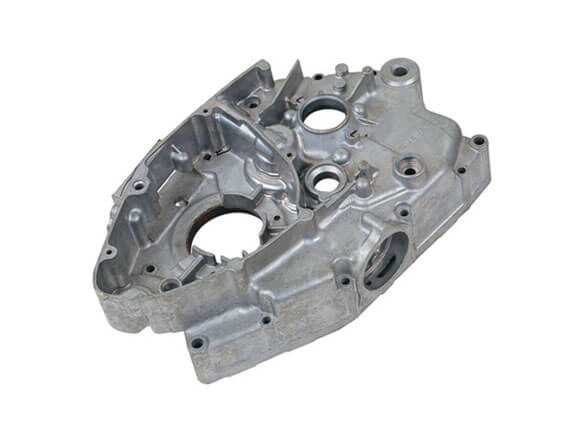Aluminum Foundry operations that balance technology and craftsmanship
How Foundry Services Enhance Production Effectiveness and Quality in Industrial Applications
Factory services play an important role in enhancing manufacturing efficiency and quality throughout various industrial applications. By executing advanced metal casting techniques, these solutions guarantee parts are made with precision and uniformity. This not only minimizes preparations yet also lessens waste, fostering better collaboration between manufacturers and factories. The effect of high-grade elements on operational efficiency raises vital inquiries about the future of industrial production. What innovations lie ahead in this evolving landscape?
The Role of Shop Solutions in Streamlining Production Processes

Shops typically provide know-how in alloy development, making it possible for manufacturers to make use of advanced products that boost product efficiency. The collaboration between shops and suppliers promotes a far better understanding of manufacturing demands, resulting in enhanced processes and boosted product layouts. By leveraging factory solutions, manufacturers can achieve higher versatility, adjust to transforming market needs, and maintain competition in the industry. Overall, the role of factory solutions is essential in facilitating an extra cost-effective and reliable production landscape.
Advanced Technologies in Foundry Procedures
Ingenious innovations are transforming shop procedures, noticeably boosting performance and accuracy. Automation plays an essential duty, with robot systems streamlining recurring jobs such as molding and product handling. In addition, advancements in computer-aided style (CAD) and computer-aided production (WEB CAM) systems make it possible for foundries to create intricate geometries with greater precision and decreased material waste.
Additionally, the combination of expert system (AI) and device knowing boosts high quality control by keeping an eye on procedures in real-time and anticipating potential problems prior to they happen. Using innovative materials, such as light-weight alloys and compounds, further improves the efficiency qualities of cast items.
3D printing technology is transforming prototyping and tooling, allowing for fast personalization and reduced lead times. Jointly, these sophisticated innovations not just boost manufacturing effectiveness yet also ensure that the final products fulfill strict high quality requirements, placing factories at the center of contemporary commercial applications.
Minimizing Lead Times Through Efficient Shop Practices
Reliable factory techniques play an important role in decreasing lead times within manufacturing environments. By executing structured production procedures and advanced scheduling techniques, suppliers can boost operations and maximize source allowance. These improvements not only accelerate outcome but likewise add to overall functional effectiveness.
Streamlined Manufacturing Procedures
Simplifying production procedures is vital for minimizing preparations in the manufacturing sector. Reliable factory practices, consisting of maximized workflows and source monitoring, play an important function in accomplishing this objective. By decreasing waste and boosting communication amongst groups, foundries can considerably boost their operational efficiency. The application of standard procedures additionally adds to consistent high quality and faster turnaround times, making it possible for manufacturers to react even more promptly to market needs. Additionally, the assimilation of advanced technologies, such as automation and real-time tracking systems, assists in determining traffic jams and assisting in prompt interventions. Generally, a concentrate on streamlined manufacturing procedures not just accelerates preparations yet also boosts the total competition of industrial applications, making sure that items fulfill client assumptions effectively.
Advanced Scheduling Techniques
Efficient manufacturing processes normally lead makers to explore innovative organizing techniques as a way to even more decrease lead times. By employing innovative algorithms and software application, factories can maximize workflows, straightening manufacturing schedules with need forecasts and resource schedule. Strategies such as Just-In-Time (JIT) organizing reduce inventory expenses while ensuring prompt material shipment, thus boosting operational efficiency. Additionally, incorporating real-time data analytics enables foundries to anticipate potential hold-ups and change schedules proactively. This versatility not just enhances operations however likewise improves general productivity. Additionally, joint preparation with clients and distributors can foster a much more integrated supply chain, more reducing lead times. Inevitably, these advanced scheduling techniques empower foundries to attain greater performance and superior high quality in their production processes.
Making Sure Precision and High Quality in Steel Spreading
Guaranteeing accuracy and quality in steel spreading calls for a precise method that encompasses every stage of the manufacturing procedure. This procedure starts with cautious layout and design of the mold and mildews, assuring they can this contact form hold up against the molten steel's temperature level and stress. The option of premium resources is important, as contaminations can jeopardize the last product.
Once the products are prepared, precise temperature level control throughout melting and putting is fundamental to attain the wanted residential properties in the cast steel. Checking solidification and cooling rates more guarantees dimensional accuracy and surface coating.
Quality assurance techniques, such as non-destructive testing and examination, are critical to identifying defects early in the procedure. aluminum casting. Furthermore, utilizing knowledgeable employees that understand the subtleties of steel casting adds substantially to keeping high requirements. On the whole, these methods jointly improve the dependability and efficiency of actors elements in numerous industrial applications
Reducing Waste and Maximizing Source Usage

Furthermore, reusing scrap metal within the foundry itself can considerably reduce waste, changing by-products into useful Get More Information sources. Lean making concepts likewise add to lose decrease by simplifying procedures and eliminating unneeded steps, resulting in much more efficient procedures.
Moreover, normal upkeep of equipment assurances peak performance, stopping break downs that can lead to wasted materials. By concentrating on these techniques, foundries not just reduce prices but additionally add to lasting methods, lining up with the growing demand for ecologically accountable production approaches in commercial applications.
The Affordable Advantage of High-Quality Components in the Market
High-quality components supply a considerable affordable advantage in the factory market, where precision and resilience are extremely important. Suppliers that focus on remarkable materials and workmanship can enhance product efficiency and dependability, bring about boosted customer complete satisfaction. This advantage is especially obvious in industries such as vehicle and aerospace, where part failure can have tragic consequences.
In addition, top notch parts often lead to lower maintenance expenses and extended product life expectancies, which can be attractive selling points for prospective customers. As market needs grow for sustainable and efficient modern technologies, the focus on high quality ends up being much more important. Companies that invest in high-quality factory solutions not only enhance their manufacturing procedures yet likewise distinguish themselves from competitors who may sacrifice quality for cost savings. Subsequently, the commitment to high-quality components ultimately translates into a stronger market position and lasting company success.
Often Asked Inquiries
What Sorts of Products Do Shop Solutions Typically Collaborate With?
Foundry solutions commonly deal with metals such as aluminum, iron, steel, and brass, together with various alloys. click for more info They also manage materials like ceramics and compounds, accommodating diverse industrial demands and specs in making procedures.
How Do Shop Solutions Effect Overall Supply Chain Administration?
Shop solutions substantially enhance supply chain management by improving product sourcing, minimizing preparations, and making certain regular high quality. Their capacity to offer tailored solutions cultivates partnership among stakeholders, eventually boosting general functional effectiveness and responsiveness in production.
What Industries Benefit The Majority Of From Foundry Solutions?
Industries such as automobile, building, aerospace, and customer products greatly profit from shop services. These sectors rely upon accuracy spreadings to fulfill strict high quality criteria and improve their overall manufacturing procedures and item efficiency.
Are Factory Services Sustainable and Eco-friendly?
Factory solutions can be eco pleasant and lasting, particularly when employing innovative technologies and procedures - Aluminum Casting Company. Innovations such as recycling products, decreasing discharges, and enhancing power use add to minimizing their environmental effect in industrial applications

How Can Firms Pick the Right Factory Company?
Business can select the ideal factory company by reviewing proficiency, manufacturing capacities, high quality accreditations, technology used, client reviews, and sustainability techniques while making certain positioning with their specific task demands and long-term company objectives.
Factory services play a crucial role in boosting production performance and high quality across various commercial applications. The partnership between makers and foundries cultivates a much better understanding of production demands, leading to enhanced procedures and improved item styles. Reliable factory methods play a crucial duty in minimizing lead times within manufacturing settings. By utilizing innovative formulas and software program, factories can optimize process, lining up production schedules with demand projections and source schedule. Companies that spend in high-grade factory solutions not just enhance their production procedures but likewise separate themselves from competitors who might give up top quality for cost financial savings.